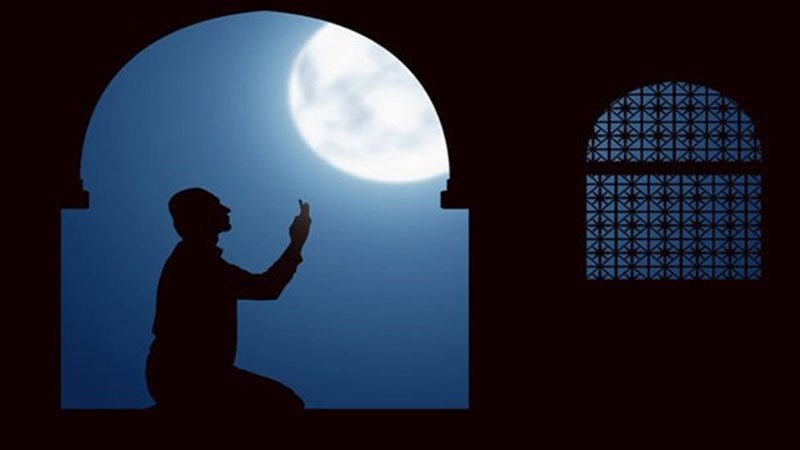Many devotees also visit graveyards to seek eternal blessings for the departed souls of their near and dear ones on this occasion and many others choose to give charity on Lailatul Qadr to receive the greatest reward.
Alaul Alam: In a Hadith cited when some ‘sahabahs’ or companions of the Prophet (peace be upon him) drew the attention of him that they would not have as long lifespan as their predecessors had; so how they would be able to please Allah with their prayers in the short lifespan. The Prophet (peace be upon him) assured that Allah gifted them a few sacred nights which in terms of value and respect are better than those of thousand months.
Among those, Lailatul Qadr is one of the most sacred nights for the Muslims and worshipping on this night is better than eighty three years of worships. There are many Quranic ayahs (verses) and hadiths about the importance and significance of this blessed night. On this night the first verses of the holy Quran was revealed to the Prophet Muhammad (peace be upon him) by Angel Jibrail. Allah says in the Quran,“The night of Decree is better than a thousand months (Quran, 97:3)”.
According to the Hadith Bukhari and Muslim, Abu Huraira (may God be pleased with him) narrated that the Prophet (peace and blessings be upon him) said: “Whoever prays on Lailatul Qadr out of faith and sincerity, shall have all their past sins forgiven”.
Cited in the Sahih Hadith, when Hazrat Aisha (may Allah be well pleased with her) asked the Prophet (peace be upon him) “O Messenger of Allah, if it is Lailatul Qadr, then what should I plead with? “The Prophet (peace be upon him) replied with the famous dua: “Allahumma, innaka Afuwwun Karimun, tuḥibbu al-afwafa‘afuanna” – “O Allah, indeed You are Pardoning and Generous; You love to pardon, so pardon us.”
Obviously, Lailatul Qadr is the holiest night in the month of Ramadan. It is considered that in the last 10 days of Ramadan one of the odd-numbered nights is the Night of Power. According to different authentic sources, Muslims are encouraged to look for the holy night in the odd nights of the month’s last 10 days though many cite evidence in regard to the eve of Ramadan 27 as Lailatul Qadr.
It is narrated by Aishah (R.A) that the Prophet (peace and blessings be upon him) used to strive in seeking Lailatul Qadr during the last ten nights of Ramadan and would engage himself in devotion keeping awake all those nights. During the time the Prophet (peace be upon him) used to practice ‘itikaf’ cited in Sahih Bukhari.
By seeking Lailatul Qadr a person attains the pleasure of Allah which not only rewards him/her in the hereafter world but also shows them the right path of blessing in this world. The Almighty Allah has concealed this night among the other nights in Ramadan to justify our patience and efforts for the salvation and blissful life. Sincerely praying for forgiveness, reciting the holy Quran, sending ‘salawat’ (blessing upon Prophet) and offering ‘nafl’ prayers are the acts of rewards on this night.
As it is already mentioned in the above that the eve of 27 Ramadan has been considered as the night of Decree by many Islamic thinkers across the world. On this night Muslims spend time studying and reciting the Quran, worshipping Allah and asking supplications. Special prayers and sermons are also held in the mosques across the country. Most Muslim male devotes go to mosques to offer the special prayers. Many devotees also visit graveyards to seek eternal blessings for the departed souls of their near and dear ones on this occasion and many others choose to give charity on Lailatul Qadr to receive the greatest reward.
However, due to Covid-19 infection like the last year this holy observance of Lailatul Qadr will be confined in the houses. Special prayers and ‘dua mahfils’ will be hardly found in the mosques across the country. But it is evident that there will be a relentless effort and devotion among the Muslims to please Allah to attain peaceful life in this world and salvation in the hereafter.
The writer teaches at Prime University. He is also a research scholar at the IBS. Email: malaulalam@gmail.com

